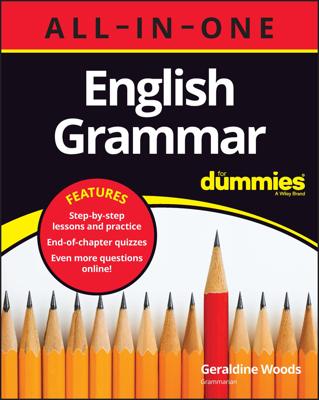Endmarks include periods (.), question marks (?), exclamation points (!), or ellipsises ( . . .). You use these punctuation marks to show that a sentence has come to an end. When you speak, your body language, silences, and tone act as punctuation marks. You wriggle your eyebrows, stop at significant moments, and raise your tone when you ask a question.
When you write, you can’t raise an eyebrow or stop for a dramatic moment. No one hears your tone of voice. That’s why grammar uses endmarks. The endmarks take the place of live communication and tell your reader how to “hear” the words correctly. Plus, you need endmarks to close your sentences legally.
The following examples show how to use endmarks correctly.
The period is for ordinary statements, declarations, and commands:
I can’t do my homework.
I refuse to do my homework.
I will never do homework again.
The question mark is for questions:
Why are you torturing me with this homework?
Is there no justice in the world of homework?
Does no one know how much work in listed in my assignment pad?
The exclamation point adds a little drama to sentences that would otherwise end in periods:
I can’t do my homework!
I absolutely positively refuse to do it!
Oh, the agony of homework I’ve seen!
An ellipsis (three dots) signals that something has been left out of a sentence. When missing words occur at the end of a sentence, use four dots (three for the missing words and one for the end of the sentence):
Michael choked, “I can’t do my. . . .”
Roger complained, “If you don’t shut up, I. . . .”
Don’t put more than one endmark at the end of a sentence, unless you’re trying to create a comic effect:
He said my cooking tasted like what?!?!?!
Don’t put any endmarks in the middle of a sentence. You may find a period inside a sentence as part of an abbreviation; in this case, the period is not considered an endmark. If the sentence ends with an abbreviation, let the period after the abbreviation do double duty. Don’t add another period:
Wrong: When Ella woke me, it was six a.m..
Right: When Ella woke me, it was six a.m.
Can you punctuate this example correctly?
Who’s there Archie I think there is someone at the door Archie it’s a murderer Archie he’s going to
Answer: Who’s there? Archie, I think there is someone at the door. Archie, it’s a murderer! ((A period is acceptable here also.) Archie, he’s going to. . . .

